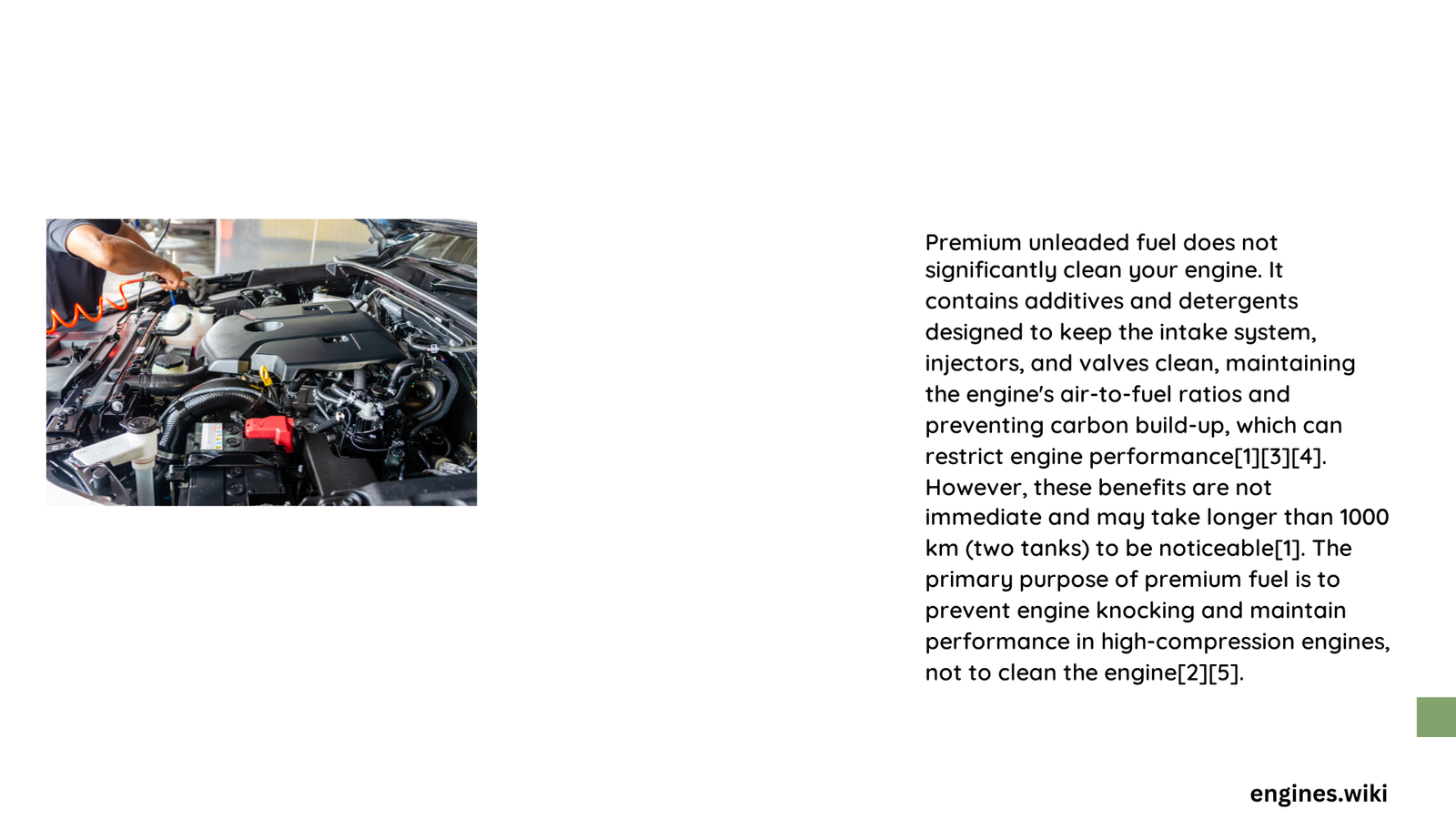Premium unleaded fuel contains specialized detergents and additives designed to potentially mitigate engine deposits, but the cleaning effectiveness is not substantially different from standard gasoline. Vehicle owners seeking optimal engine performance must understand the nuanced relationship between fuel quality, engine design, and maintenance practices. This comprehensive analysis explores the scientific evidence behind premium fuel’s cleaning capabilities and provides actionable insights for automotive enthusiasts and everyday drivers.
What Determines Engine Cleaning Effectiveness in Premium Unleaded Fuel?
Are Fuel Additives Truly Different Between Regular and Premium Gasoline?
Modern fuel formulations across all octane ratings incorporate cleaning agents, challenging the misconception that premium fuel offers superior engine cleaning. Key observations include:
- Detergent Concentration: Both regular and premium fuels contain deposit control additives
- Standardized Additive Packages: Fuel manufacturers follow strict industry guidelines
- Minimal Performance Differential: No conclusive evidence supports significant cleaning advantages
| Fuel Type | Typical Additive Concentration | Cleaning Effectiveness |
|---|---|---|
| Regular | Standard Detergent Package | Moderate |
| Premium | Enhanced Detergent Package | Marginally Higher |
How Do Engine Deposits Actually Form?
Engine deposits accumulate through multiple mechanisms:
- Combustion byproducts
- Carbon buildup
- Incomplete fuel combustion
- Heat-induced molecular breakdown
- Microscopic particulate accumulation
Can Premium Fuel Prevent Long-Term Engine Degradation?
While premium fuel contains marginally enhanced cleaning properties, preventative maintenance remains paramount:
- Regular oil changes
- Scheduled engine servicing
- Using manufacturer-recommended fuel grades
- Implementing periodic fuel system cleanings
Technical Insights into Fuel Additive Performance

What Scientific Evidence Supports Fuel Cleaning Claims?
Research indicates that:
- Fuel additive effectiveness depends more on chemical composition than octane rating
- High-performance engines might benefit from specialized fuel formulations
- Standard vehicles experience minimal performance improvements from premium fuel
Are There Quantifiable Benefits to Using Premium Unleaded?
Empirical data suggests:
- Potential 1-2% marginal performance improvement
- Negligible long-term engine deposit reduction
- Increased fuel cost without proportional benefits
Practical Recommendations for Vehicle Owners
When Should You Consider Premium Fuel?
Recommended scenarios include:
- High-performance vehicles
- Manufacturer-specified high-octane requirements
- Vehicles with advanced engine technologies
- Racing or competitive driving applications
Cost-Benefit Analysis of Premium Fuel Usage
| Factor | Regular Fuel | Premium Fuel |
|---|---|---|
| Average Cost | Lower | 20-50¢ Higher |
| Cleaning Effect | Adequate | Marginally Enhanced |
| Recommended Use | Most Vehicles | Specific Models |
Expert Recommendations
Vehicle owners should prioritize:
- Following manufacturer fuel recommendations
- Maintaining consistent service schedules
- Using quality fuel from reputable stations
- Monitoring engine performance indicators
Pro Tip: Periodic fuel system cleaning treatments provide more consistent benefits than relying solely on premium fuel additives.
Final Technical Assessment
Premium unleaded fuel offers minimal additional engine cleaning benefits compared to standard gasoline. Comprehensive engine maintenance and adherence to manufacturer guidelines remain the most effective strategies for preserving engine health and performance.
Reference:
– SAE International Fuel Quality Standards
– EPA Fuel Additive Regulations
– Society of Automotive Engineers Research
